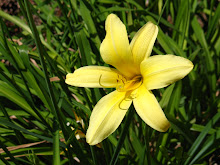Homer wrote The Odyssey before Virgil wrote his Aeneid. In fact, Vergil copied Homer’s story, but he just personalized it. “It shows similarities of plot, theme, and style in both these epic poems.” (source) For example: In the Odyssey, Poseidon sends Odysseus bad weather and keeps him from returning home. Athena saves his life and he washes up on the shore. In the Aeneid, “Juno stirs up a storm to keep Aeneas and the Trojans from their fated home of Italy. Neptune stops the storm and they wash up” (source) on the shore, also. (source)
Here are some comparisons of these two epic poems:
"Like the great Homerian work, The Odyssey, Aeneas' story begins in medias res, or ‘in the middle of things.’ The story does not open on the original action of the book. The Odyssey opens in this similar fashion.”(source)
Both stories invoke the Muse.
Both include the story of the fall of Troy.
The main character in each finds a lover in the land where they wash up, and then they tell of their adventures.
Both travel to the underworld to get advice.
Both get into trouble when one of their men kill a precious animal to eat.
When Aeneas was away, the Latins attack his camp. This is like when Odysseus was away, and the suitors came to invade his house. (Copley 3 & 6, Lattimore 27 & 31, source, source)
Some differences are:
The characters and the gods have different names.
Odysseus marries his lover, but Aeneas does not.
Dido kills herself when Aeneas leaves, but Penelope waits for years for Odysseus to come back. (source, source)
As one can see, there are more similarities than differences between the two. Vergil obviously loved Homer’s work and read it thoroughly. After all these years, we still read both Homer’s and Vergil’s works today!
Works Cited
Copley, Frank O. The Aeneid, Second Edition. New York: Macmillan Publishing Company. 1975.
Lattimore, Richmond. The Odyssey of Homer. New York: Harper & Row, Publishers. 1965.
Saturday, January 26, 2008
Subscribe to:
Post Comments (Atom)


1 comment:
5,5,5
Post a Comment